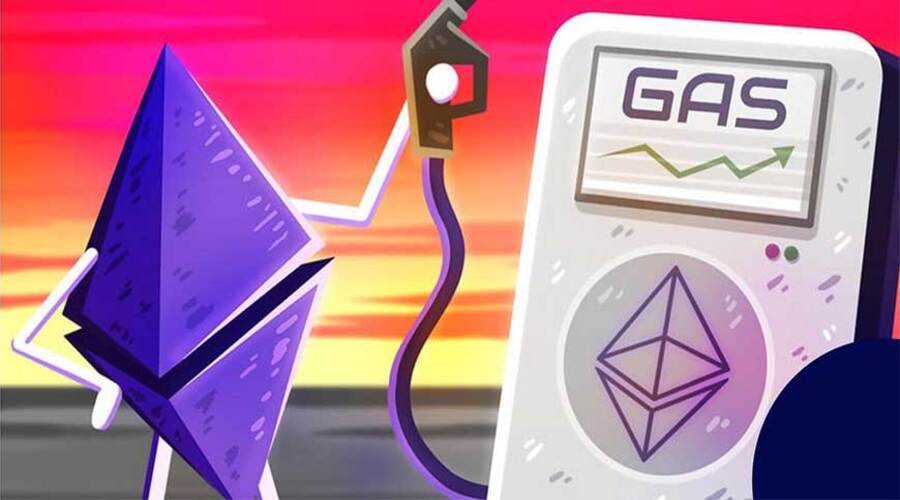
Ethereum is the second-largest cryptocurrency platform after Bitcoin. It was designed as a decentralized platform for building decentralized applications (dApps) using smart contracts. Ethereum uses a unique fee system known as “gas” to pay for the computational resources required to execute smart contracts and transactions on the network.
Gas fees are the cost of running a transaction on the Ethereum network. These fees are paid to miners, who are responsible for processing and verifying transactions on the network. The amount of gas required for a transaction depends on the complexity of the transaction and the congestion on the network. In this article, we will explore the impact of gas fees on Ethereum transactions.
Gas Fees and Transaction Confirmation Time
The gas fee paid by a user determines the priority of their transaction on the Ethereum network. Transactions with higher gas fees are given priority by miners and are usually processed faster than transactions with lower fees. This means that users who pay higher gas fees can expect their transactions to be confirmed faster than those who pay lower fees.
Transaction confirmation time can vary depending on the congestion on the network. During times of high network congestion, transactions can take longer to confirm, and gas fees can increase significantly. In extreme cases, users may have to wait for hours or even days for their transactions to be confirmed.
Gas Fees and the Cost of Transactions
Gas fees are denominated in Gwei, which is a small fraction of Ethereum. The cost of gas can fluctuate rapidly depending on the supply and demand for computational resources on the network. This means that the cost of a transaction can also vary significantly, depending on the gas fee paid by the user.
In some cases, gas fees can be prohibitively high, making it difficult for users to transact on the Ethereum network. This can be a significant barrier to adoption, especially for small transactions.
Gas Fees and Smart Contracts
Smart contracts are self-executing contracts that are executed automatically when certain conditions are met. These contracts are a fundamental component of the Ethereum network and are used in a wide range of applications, including decentralized finance (DeFi), gaming, and social media.
Smart contracts require gas to execute, just like regular transactions. The amount of gas required for a smart contract depends on the complexity of the contract and the amount of data being processed. This means that smart contracts can be more expensive to execute than regular transactions, especially if they involve complex computations or large amounts of data.
Impact of Gas Fees on Decentralized Finance (DeFi)
Decentralized finance (DeFi) is an important use case for the Ethereum network. DeFi applications enable users to access financial services, such as lending, borrowing, and trading, without the need for intermediaries. However, DeFi applications are also subject to the impact of gas fees.
High gas fees can make it expensive for users to participate in DeFi applications, especially for small transactions. This can result in a lack of liquidity and reduced adoption of DeFi applications. In some cases, users may also be forced to use centralized exchanges, which can defeat the purpose of decentralized finance.
Solutions to High Gas Fees
There are several solutions to high gas fees on the Ethereum network.
- One solution is to use layer 2 solutions, which are designed to reduce the load on the Ethereum network by processing transactions off-chain. Layer 2 solutions can significantly reduce gas fees and increase transaction throughput.
- Another solution is to use alternative blockchains that are designed to reduce the cost of transactions. These blockchains, such as Binance Smart Chain and Polygon, are gaining popularity among users who want to transact on decentralized applications with lower fees.Gas Limit vs. Gas Price
Gas Tokens
Gas tokens are a type of Ethereum token that can be used to pay for gas fees on the Ethereum network. Gas tokens are created by depositing Ether into a smart contract, which then generates an equivalent amount of gas tokens. Gas tokens can be used to pay for gas fees on the network, and their value is pegged to the cost of gas on the network. Gas tokens can be a useful tool for users who want to lock in the cost of gas fees and avoid fluctuations in gas prices.
Gas Efficiency
Gas efficiency refers to the ability to execute transactions and smart contracts using the minimum amount of gas possible. Gas efficiency is important because it can reduce the cost of transactions and make them more accessible to users. Gas efficiency can be achieved by optimizing smart contracts and minimizing the amount of data processed by transactions. Gas efficiency is becoming an increasingly important factor in the development of decentralized applications, as developers seek to reduce the cost and improve the speed of transactions on the Ethereum network.
Gas Estimators
Gas estimators are tools that can help users estimate the appropriate gas limit and gas price for their transactions. Gas estimators analyze the current state of the Ethereum network, including the congestion and gas prices, and provide users with recommendations on the appropriate gas limit and gas price for their transactions. Gas estimators can be a useful tool for users who want to optimize the cost and speed of their transactions.
Gas Price Oracle
A gas price oracle is a tool that provides real-time information on the current gas prices on the Ethereum network. Gas price oracles are important because they can help users make informed decisions about the appropriate gas price for their transactions. Gas price oracles are typically provided by third-party services and are widely used by users of decentralized applications and exchanges.
These are just a few additional subtopics related to gas fees and Ethereum transactions. By exploring these topics in more detail, you can gain a deeper understanding of the complexities and challenges associated with transacting on the Ethereum network.
Conclusion
In conclusion, gas fees are a necessary component of the Ethereum network, but they can have a significant impact on the cost and speed of transactions. While high gas fees can be a barrier to adoption, there are several solutions available to address the issue, including layer 2 solutions and alternative blockchains. As the Ethereum network continues to evolve, it is likely that new solutions will emerge to address the issue of gas fees and make decentralized applications more accessible to a wider range of users.
I’m a highly experienced and well-respected author in the field of cryptocurrency. I have been writing about Bitcoin, Ethereum, and other digital assets for over 5 years. In addition to my career as an author, I’m also a highly sought-after keynote speaker and consultant on all things crypto and I’m passionate about helping people understand this complex and often misunderstood industry.
